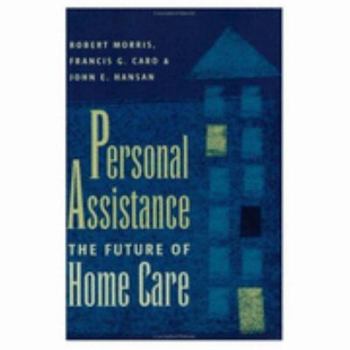Personal Assistance: The Future of Home Care
Select Format
Select Condition 
Book Overview
Because of wide-ranging changes in demographics, family structure, and the financing and delivery of health services, long-term care has emerged as an important concern for health and public policy. But long-term care has lacked a conceptual foundation that public policy analysts and families can draw upon to shape its development. Personal Assistance: The Future of Home Care examines how community-based long-term care can develop constructively in an environment in which expanded public financing is an unlikely option. The authors begin by discussing the history, financing, and delivery of long-term care. Chapters propose strategies for strengthening home- and community-based services: expanding cash payments and more extensive self-financing, expanding the use of assistive technology and supported housing, and increasing the use of volunteers. Examining all aspects of current medical and home care services, the authors propose a new model for home care that maximizes cost-effective delivery of reliable services tailored to individual needs. Unlike current health care programs, their proposal builds on new insurance options to show how reallocating personal resources can make home care costs comparable to those of a nursing home but allow the individual greater personal freedom. At a time when an aging population, changing family structure, and rising medical costs combine to create an ever greater need for long-term care, the conclusions and recommendations in this book are especially timely. Personal Assistance will be of interest to health care professionals, policy makers, and all who are involved in caring for the nearly twenty million persons who currently live at home with disabilities.
Format:Paperback
Language:English
ISBN:0801859034
ISBN13:9780801859038
Release Date:October 1998
Publisher:Johns Hopkins University Press
Length:220 Pages
Weight:0.68 lbs.
Dimensions:0.5" x 6.0" x 9.0"
Customer Reviews
0 rating





